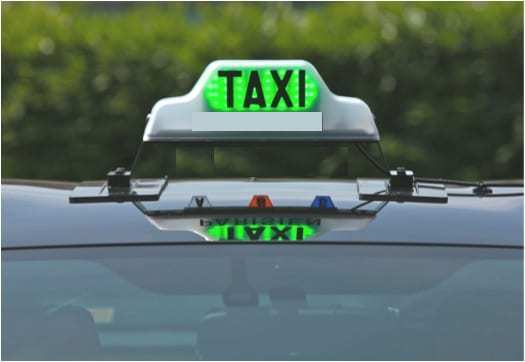A card featuring a quick response code allows the police to monitor a taxi’s entire journey.
A new QR code tracking program is launching in Delhi, India, to help cab riders know they’ll be safe. It involves using an identification card displayed on the back of the driver’s seat.
Passengers can scan the QR codes to provide the Delhi Police control room the ability to monitor the trip.
The QR code tracking card will feature the barcode as well as the driver’s name and other ID details in addition to a photo to ensure that the driver of the cab matches the ID. Cabbies will each be provided with the cards and unique QR codes. Passengers can easily scan the codes using the free Himmat app. Once the barcode is scanned, it alerts police that the journey has begun. Passengers without the app or who still have feature phones and not smartphones, can use an SMS code posted on the same ID card.
This QR code tracking service was first created by Delhi Police as a women’s safety tool in 2015.
 The new broader use trial for the quick response system first launched last Thursday. At that time, the cards displaying the QR codes were installed into the first ten Kaali-Peeli taxis operating out of the Delhi airport.
The new broader use trial for the quick response system first launched last Thursday. At that time, the cards displaying the QR codes were installed into the first ten Kaali-Peeli taxis operating out of the Delhi airport.
“The moment a passenger scans the QR code, the details will reach our special control room which has been set up specially for this purpose. The monitoring system will generate an SMS and send it to the passenger’s mobile phone as an alert,” said special commissioner of police airport and modernization, Sanjay Baniwal. He pointed out that both the barcode and the SMS code are unique to the driver. When the passenger scans them, the police is notified of that specific driver’s details, letting them track that specific cab and the journey of the rider.
The original QR code tracking trials were geared toward keeping women safe and encouraged passengers to scan the code as soon as they enter the cab. The intention is to broaden the use of the program to about 2,000 Kaali-Peeli taxis operating out of the Delhi airport during the next phase of testing.
